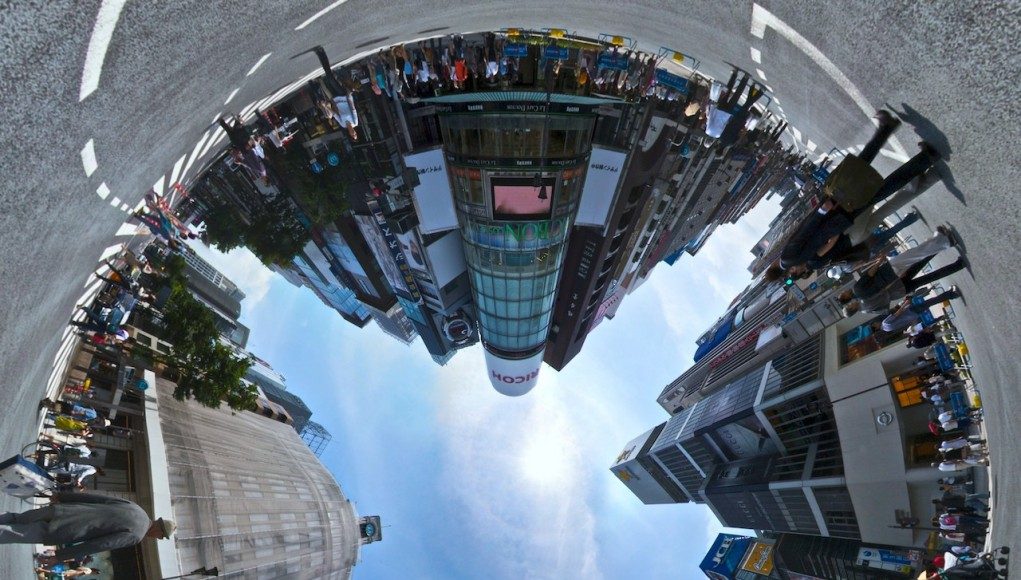 Littlstar, a new 360 degree video-sharing network, wants to put their YouTube-like platform in the hands of anyone with a cardboard (or plastic) VR headset. Considering the recent appearance of some astonishingly well-funded competition, we reached out to the company’s founder and CEO, Tony Mugavero, to see how he plans on making this a reality.
Littlstar, a new 360 degree video-sharing network, wants to put their YouTube-like platform in the hands of anyone with a cardboard (or plastic) VR headset. Considering the recent appearance of some astonishingly well-funded competition, we reached out to the company’s founder and CEO, Tony Mugavero, to see how he plans on making this a reality.

We recently speculated on who might fill the new panoramic video-sharing niche, effectively becoming the ‘YouTube of VR,’ and with Littlstar’s beta having just been released, we’ve been keeping a close eye on the company to see where it goes next. Their recently announced partnership with DODOcase, which makes a low cost cardboard VR headset—based on Google Cardboard—that utilizes a smartphone as its display, has also certainly drawn our attention (from Darknet, but only for like a minute).
See Also: The Race to Create the ‘YouTube of VR’ is On
A quick visit to the site reveals a host of polished content, ranging from 360 clips of F1 pilot Lewis Hamilton (above) burning down the track, to a dank concert hall with the band Portugal. The Man. But don’t confuse the platform for the sort of curated app that controls the production pipeline from start to finish, because Littlstar wants to pass the torch on to the VR community, who can now freely upload and share panoramic home videos and events for free.

The potential to become a leader in the panoramic video-sharing industry however has Littlstar making some decidedly tactical moves. In a chat with the Mugavero, he revealed to me that the company isn’t so much interested in developing its app for the DK2 or Gear VR just yet, although they do plan on getting around to it once they’re both released as consumer devices.
Instead, Littlstar’s focus right now is on generating buzz around the platform, and allowing for the videos to be easily consumed by uninitiated users, which will happen through the company’s mouse-only experience made available via internet browser and, as of yesterday, also a closed beta app for Android devices which is soon to go public. An iOS app is also in the works, which is going into beta in early January. “We want to get as many people excited about it as possible,” Mugavero said.
He also revealed that both Android and iOS apps will have a few different options to accommodate a wide variety of users including those with Google Cardboard variants, and those without a headset at all. Littlstar does this by integrating the smartphone’s gyroscope for both stereoscopic and landscape mode viewing, the later of which can also use touch instead of head movement to navigate through the video of choice.
Demand, yes. But what about supply?

There’s a slight problem in all of this. The prevalence of high-definition 360 degree video cameras, capable of producing footage deemed by the nascent industry as ‘cinematic video,’ is still in its infancy and can be really, really expensive—so who exactly is going to be uploading to the site? Mugavero responds:
We’re positioning ourselves to be ready for the consumer end of the market by allowing people to push in experiences that might not look great on VR right now, but the professionals [hosted on our site] are the people that are going to bring this into the mainstream mindset. A single video, like a BMX bike doing a backflip, could immediately make a kid go out and buy the camera.
See Also: First Impressions of Project Beyond, Samsung’s 360 3D Camera for VR
So Littlstar is betting that the demand for panoramic video will rise, and in turn the marketplace will respond with higher quality rigs at lower prices, making the whole process more accessible to the average consumer. This is all well and good, but what about the competition? Where does Littlstar see itself in comparison to the other ‘cinematic VR’ companies coming out like JauntVR or NextVR? Could they be considered future competitors?

What we see these companies doing is taking the approach of controlling the entire pipeline, from the creation to the end user, including the cameras, software production and distribution channel. It’s still not perfect and inaccessible to many people that are creating panoramic video already…[on Littlstar] they’re running around with 6 GoPros and are able to distribute it that day. [People on our site] can’t even get their hands on the sort of cameras used by Jaunt and Next. So we’re able to get high quality content in our system because of this.
See Also: Previously Unseen Jaunt VR Camera Prototype Appears Unexpectedly
So the term ‘YouTube of VR,’ which has been bandied about on VR forums and subreddits, doesn’t really quite resonate with Littlstar, explains CEO Tony Mugavero.
The term ‘Youtube of VR’ might be a little broad. I think what we’re doing is democratizing VR cinema. Although the scale of where we can go with this is very YouTube-ish, we feel like there’s an opportunity here to do something different. YouTube will eventually make a push into VR, but I feel like we’re in a position now that we’ve found a passionate community and just trying to be helpful in that regard.
We’re hoping they do, because if by some horrible twist of fate Littlstar decides to add unskippable pre-roll ads like those found on YouTube, it could have us gouging the fresnel lenses out of our braincases in VR.







